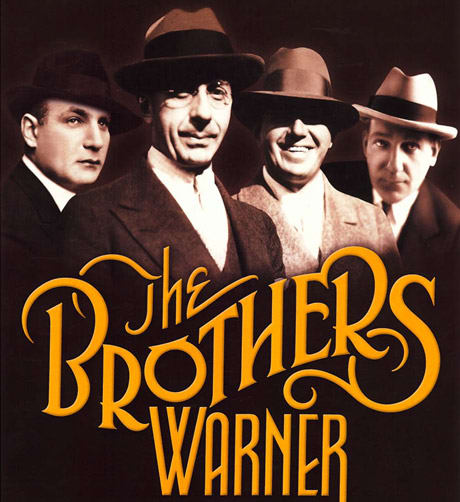Early in The Brothers Warner, a documentary about the four men who collectively formed the Warner Brothers, director/narrator Cass Warner Sperling laments how publicity-hungry studio front-man Jack Warner essentially wrote brothers Sam, Albert and Harry (her father) out of film history. Perhaps, but her often engrossing, very biased examination of her family history suggests she might have been too close to the subject for a definitive portrait. The film's first third outlines the brothers' early years, from Harry and Jack agreeing to enter the motion picture business while sneaking into five-cent nickelodeons, up to brother Sam's sudden death after the triumphant premiere of their pioneering talkie, The Jazz Singer (1927). In the fascinating midsection, Sperling shows how in the '30s and '40s Warner Bros. was the only studio consistently tackling difficult social themes and promoting progressive politics, from prison reform in I Am a Fugitive from a Chain Gang (1932) to social welfare in Gold Diggers of 1933 to early anti-Nazi propaganda film Confessions of a Nazi Spy (1939), for which they received death threats. Warner was the first studio to cut off distribution to Nazi Germany in 1934, and we learn how Harry became one of Hollywood's greatest philanthropists. Unfortunately, The Brothers Warner's final third devolves into a list of complaints and grievances against Jack. Intended as a corrective to Jack's self-promotion, Sperling's generally compelling documentary actually goes too far in the other direction, depicting him as a cruel, arrogant man eager to take credit for others' accomplishments. He insults Albert Einstein, Warren Beatty and Mrs. Chiang Kai-shek; he rushes the Oscar stage to prevent producer Hal Wallis from accepting the Best Picture award for Casablanca; and he bullies Harry out of the company. Interviewee Jack Warner Jr. even says of Harry's death shortly thereafter, "There was only one way he could get away from this man who he hated… so he closed his eyes," implicitly blaming Jack for Harry's death, which is a tad unfair considering he died from cerebral occlusion. Most of Sperling's accusations are fair, however (well, except for the one about Jack indirectly killing Harry), but surely Jack, who was one of the longest-standing and most visible moguls in Hollywood history, must have been a more capable businessman than the film gives him credit for. And isn't it a little unsavoury that Serling should conclude her film with a self-serving scene in which she forgivingly lays a flower on Jack's grave? An aside: we learn very little about Albert Warner, except that he generally served as peacekeeper between Jack and Harry, and that he reportedly had a large head. Interesting to know that the Warners had a Ringo. There are no extras.
(Warner)The Brothers Warner
Cass Warner Sperling

BY Will SloanPublished Mar 17, 2010



